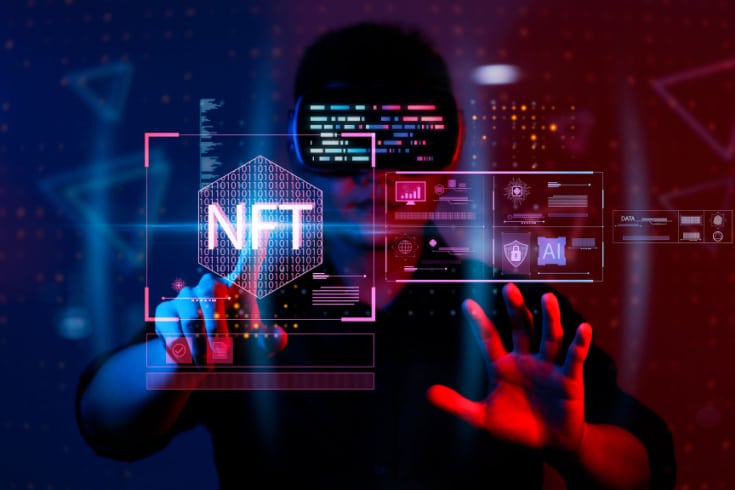Understanding NFTs and Smart Contracts in Japan: A Legal Perspective

In recent times, there has been a surge in the popularity of NFTs, resulting in an increasing number of individuals engaging in NFT-related transactions.
Although the term NFT has gained popularity, the underlying smart contract mechanism, which is crucial for NFT, remains a mystery to most people.
In this article, we will elucidate the workings of smart contracts in relation to NFTs, aimed at businesses and investors contemplating NFT-related trades.
Understanding NFTs

NFT stands for Non-Fungible Token, which refers to a unique token that cannot be exchanged for another.
The term “token” is a multi-faceted term that poses challenges in translation to Japanese.
In essence, NFTs refer to non-fungible items such as currency, vouchers, gift certificates, souvenirs, and evidence that cannot be substituted.
NFTs typically possess the following four features.
- uniqueness
- tradability
- interoperability
- Additional functionality
Uniqueness
As previously stated, NFTs are non-fungible tokens and therefore possess distinct value.
One of the defining features of NFTs is their uniqueness.
Tradability
Demonstrating the full value of an NFT is challenging if it cannot be traded, despite its unique worth.
NFT has the potential for trading, making it one of its distinctive features.
Interoperability
NFT also boasts interoperability as one of its key features.
The ERC-20 standard is commonly adopted for crypto-assets, and due to its adoption across various crypto-assets, interoperability is widely acknowledged.
It is common for NFTs to utilize the ERC-721 standard, and NFTs of the same standard are recognized for their interoperability.
Additional Functionality
NFTs have the capability to be programmed with a variety of functions.
The inclusion of this supplementary function is also a characteristic of NFT.
What is a smart contract
The term “smart contract” lacks a fixed definition and can be ambiguous.
In a general context, a smart contract refers to a mechanism that automatically executes a predetermined process when specific conditions are met concerning a contract or transaction.
In NFT transactions, a smart contract mechanism is adopted.
NFTs are commonly traded on marketplaces. During NFT transactions, the smart contract function automatically updates the blockchain with the new right holder of the NFT upon delivery.
Advantages of Smart Contracts
Smart contracts offer several advantages, including the following.
- Saving transaction history
- Reducing transaction time
- Reducing transaction costs
Saving Transaction History
By utilizing the smart contract mechanism, the transaction history will be automatically logged as data on the blockchain.
By recording transaction histories as data, it is possible to verify them at a later time and prevent unauthorized tampering with transaction details.
Reducing Transaction Time
By utilizing the smart contract mechanism, transactions are executed automatically, thereby reducing the time required for transactions.
In contrast to scenarios where a third party interferes in transactions, there is no such intervention and the transaction is automatically completed, hence reducing the time required for the transaction accordingly.
Reducing Transaction Costs
The utilization of smart contract mechanism eliminates the necessity to pay third-party fees and other related charges, which ultimately results in a decrease in transaction expenses. This can be a useful approach to minimize the overall costs of transactions.
Disadvantages of Smart Contracts
There are several drawbacks to using smart contracts, including:
- Difficulty of responding flexibly
- Program safety uncertainty
- Privacy protection issues
- Issues related to legal development in Japan
Difficulty of Responding Flexibly
One drawback of smart contracts is their reliance on pre-built programs, which can limit their flexibility in responding to unforeseen circumstances.
Program Safety Uncertainty
In the event of a problem or vulnerability in the smart contract program, fraudulent activities may arise as a result.
As a result, the program’s construction may lack safety guarantees, which is a disadvantage.
Privacy Protection Issues
As previously noted, smart contracts offer the benefit of automatic transaction history saved on the blockchain. Nonetheless, it is worth noting that in some cases, identifying an individual from the transaction history can be relatively simple, as all transaction history is preserved.
One potential drawback is that it could lead to complications with safeguarding personal privacy.
Legal Development in Japan
Smart contracts have experienced rapid development in recent years and are now a well-established mechanism.
As its popularity increases, various legal issues may arise.
In Japan, the legal framework for smart contracts is currently insufficient, and this may lead to potential legal issues in the future.
Smart Contracts vs. Conventional Contracts and Key Considerations under Japanese Law
As previously stated, a smart contract is a mechanism that automates transactions.
In the case of a standard contract, corrections can be made if errors are discovered in the contract content at a later time. However, smart contracts automatically save transaction histories, making it challenging to make such corrections.
In NFT transactions utilizing smart contracts, the blockchain’s smart contract function automatically rewrites the right holder of the NFT at the time of delivery.
Legal remedies can be pursued for NFT transactions completed by smart contracts due to insufficient legal development in Japan regarding such contracts. In cases where there are inappropriate clauses in the contract, it may be unclear whether legal recourse is available compared to traditional contracts.
Legal issues in Japan

When addressing legal issues in Japan, the initial consideration should be the connection with the Japanese Civil Code.
According to Article 95 of the Japanese Civil Code, if there is a significant error in the expression of intent, the act can be revoked based on the purpose of the juristic act and the social conventions for transactions.
In the event of an error during an NFT transaction utilizing the smart contract mechanism, cancellation of the transaction may not be a straightforward process. It may be necessary to indicate that the transaction has been cancelled.
Furthermore, it may be related to Japan’s Personal Information Protection Law.
Under Article 34, Paragraph 1 of the Personal Information Protection Act of Japan, in instances where the retained personal data that identifies the individual is found to be inaccurate, the individual has the right to request the business operator handling personal information to delete the data.
When utilizing the smart contract mechanism, a potential issue may arise where the stored personal data cannot be deleted.
Moreover, if personal information stored on the blockchain creates an issue, it can be challenging to recognize the business entity responsible for managing such data. Consequently, even if personal data is shared with third parties (Article 37, Paragraph 1 of Japan’s Personal Information Protection Act), it is believed that the provisions of the said Act do not hold. This can lead to potential complications.
Due to the issues associated with smart contracts, the Smart Contract Promotion Association was founded on October 20th, 2020. This association is currently working to review smart contracts and establish industry standards.
Consulting a Lawyer for NFT Trading
Thus far, we have elucidated the smart contract mechanism pertaining to NFTs for enterprises and investors contemplating NFT-related transactions.
Smart contracts used for NFT transactions may give rise to distinct legal issues as compared to conventional transactions.
We suggest that business operators and investors who are contemplating NFT transactions seek advice from a lawyer with specialized expertise.
Guidance of Countermeasures by Our Office
Monolith Law Office is a highly specialized law firm with expertise in both IT, especially the Internet, and law. Our firm offers comprehensive support to businesses involved in crypto assets and blockchain.
Category: IT





















